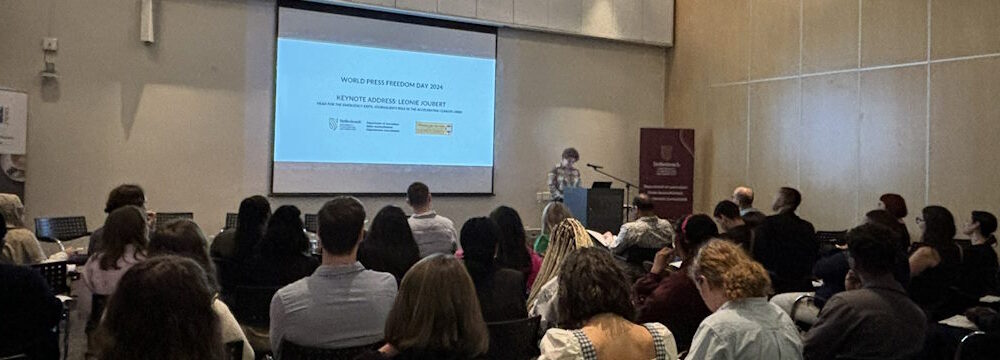
On 2 May 2024, World Press Freedom Day spotlighted the urgent link between media freedom and the environmental crisis. Stellenbosch Journalism joined the global conversation, affirming that a free and independent press is essential to exposing environmental injustices and amplifying sustainable solutions.
The theme this year highlights how journalists not only report but also shape public understanding of climate change, biodiversity loss, and environmental degradation. Dr Dominic Okoliko, CREST Postdoctoral Fellow at Stellenbosch University, reminded us that environmental reporting must be both relatable and objective, making the crisis tangible for everyday people.
Rupert Koopman, Conservation Manager at the Botanical Society of South Africa, challenged the dominant language of “destruction,” noting that not all change in nature is harmful. To move forward, the media must distinguish between natural evolution and human-induced damage.
David Le Page, Co-founder of Fossil Free South Africa, added that the economic system—rooted in extraction and exploitation—is mirrored in media narratives, which often privilege corporate voices over civil society.
Keynote speaker, science writer and journalist, Leonie Joubert, called for narrative storytelling that combines science with empathy. She argued that journalism has yet to fully meet its responsibility as the Fourth Estate in tackling this crisis. Her call to action: find a balance between facts and feelings, start or join movements, and push newsrooms to prioritize environmental coverage. Above all, she urged journalists to protect their mental health while confronting these overwhelming realities.
In a time of ecological upheaval, a free press is not a luxury—it’s a lifeline.

The seating order for this year’s commemoration of World Press Freedom Day, focusing on the environmental crisis.

Prof Wasserman welcomes the audience to the proceedings.
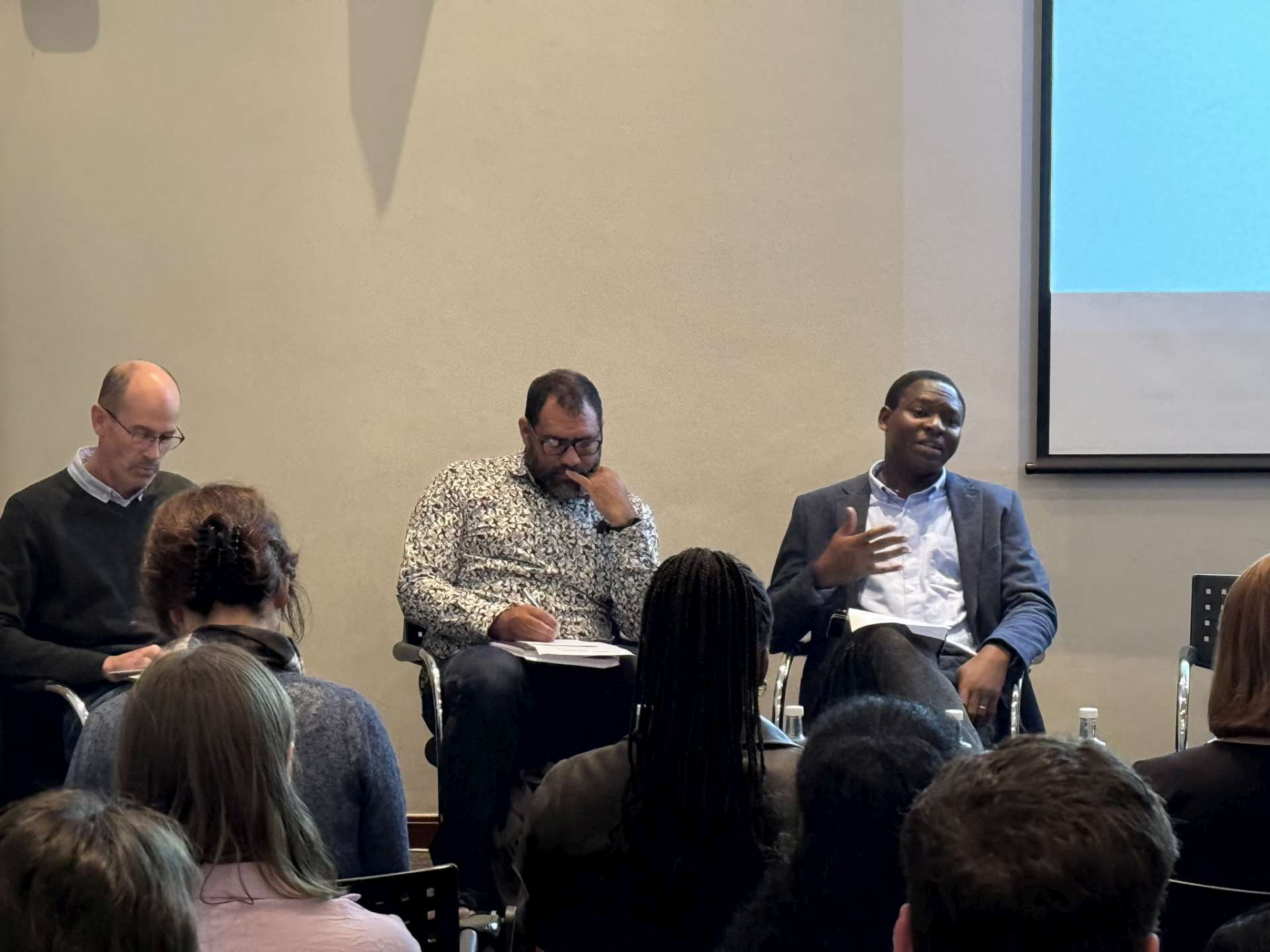
Today’s panel at the commemoration.
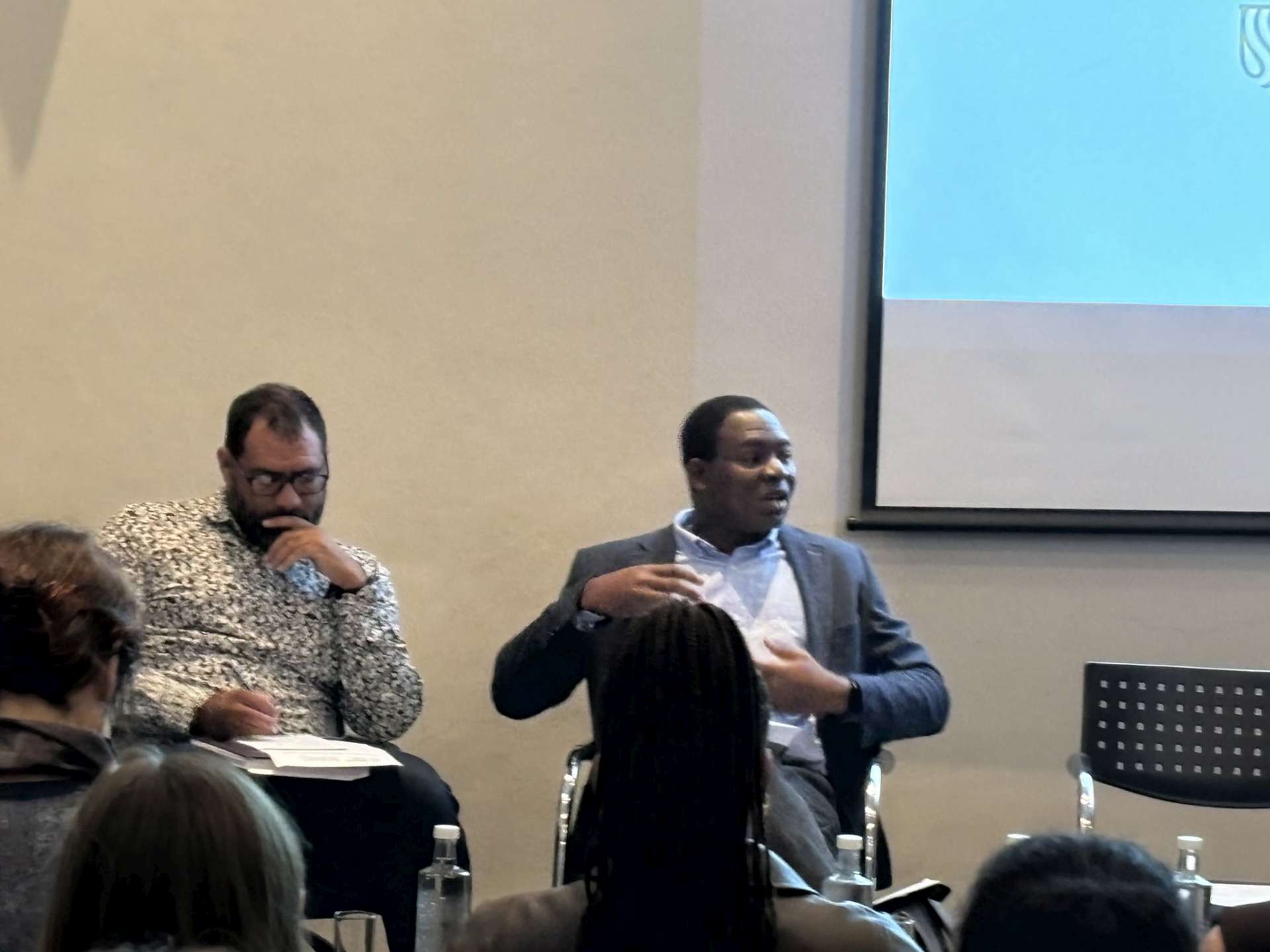
Dr Dominic Okoliko states that stories about the environmental need to be relatable and also objective. The press is not removed from society as such, it needs to be engaging for the grassroots to understand.
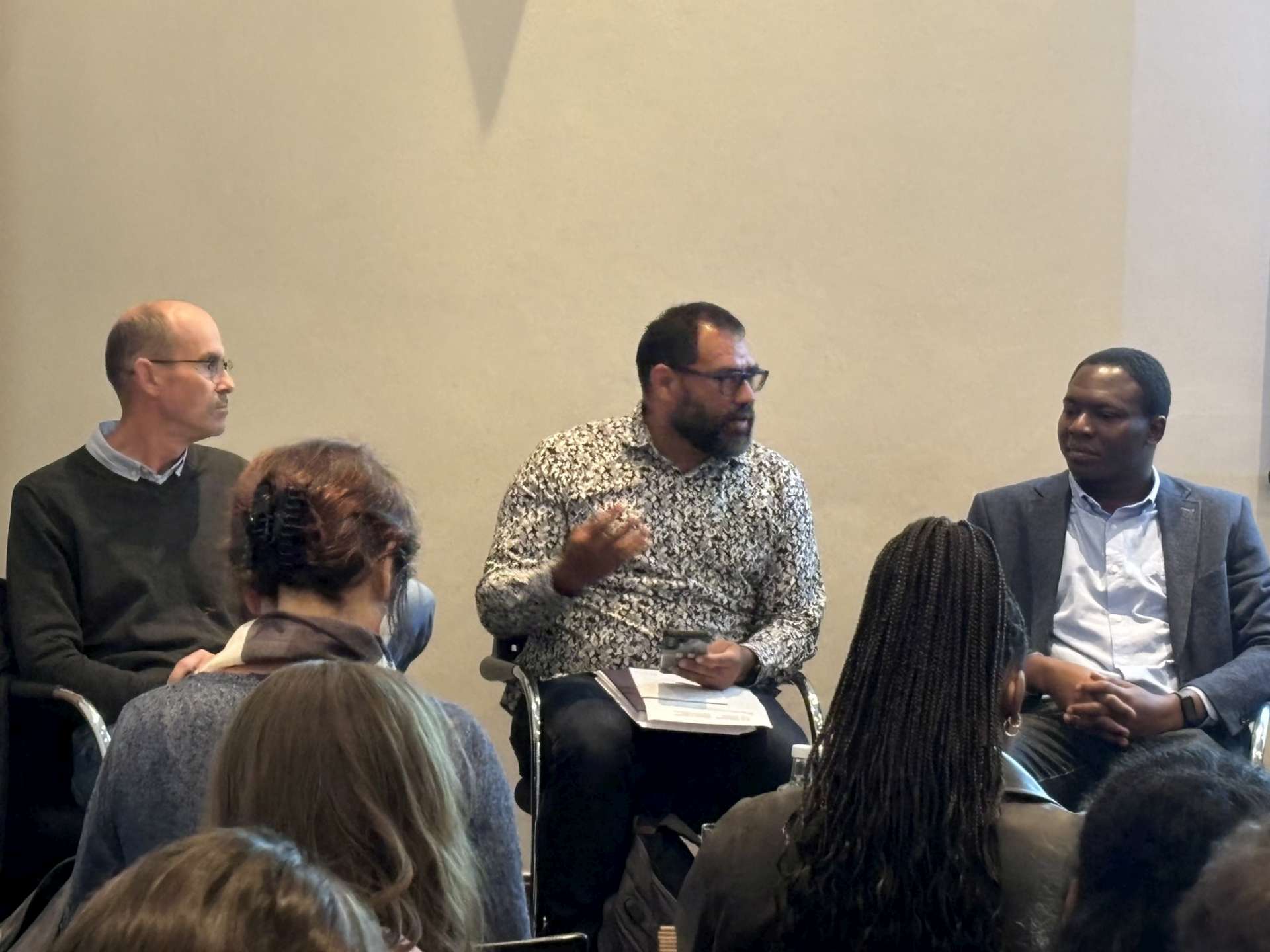
Rupert states that the language around destruction vs rejuvenation needs to be reevaluated. The environment naturally evolves which often deemed as destruction. While there is destruction, there needs to be actual distinguishing between the two.
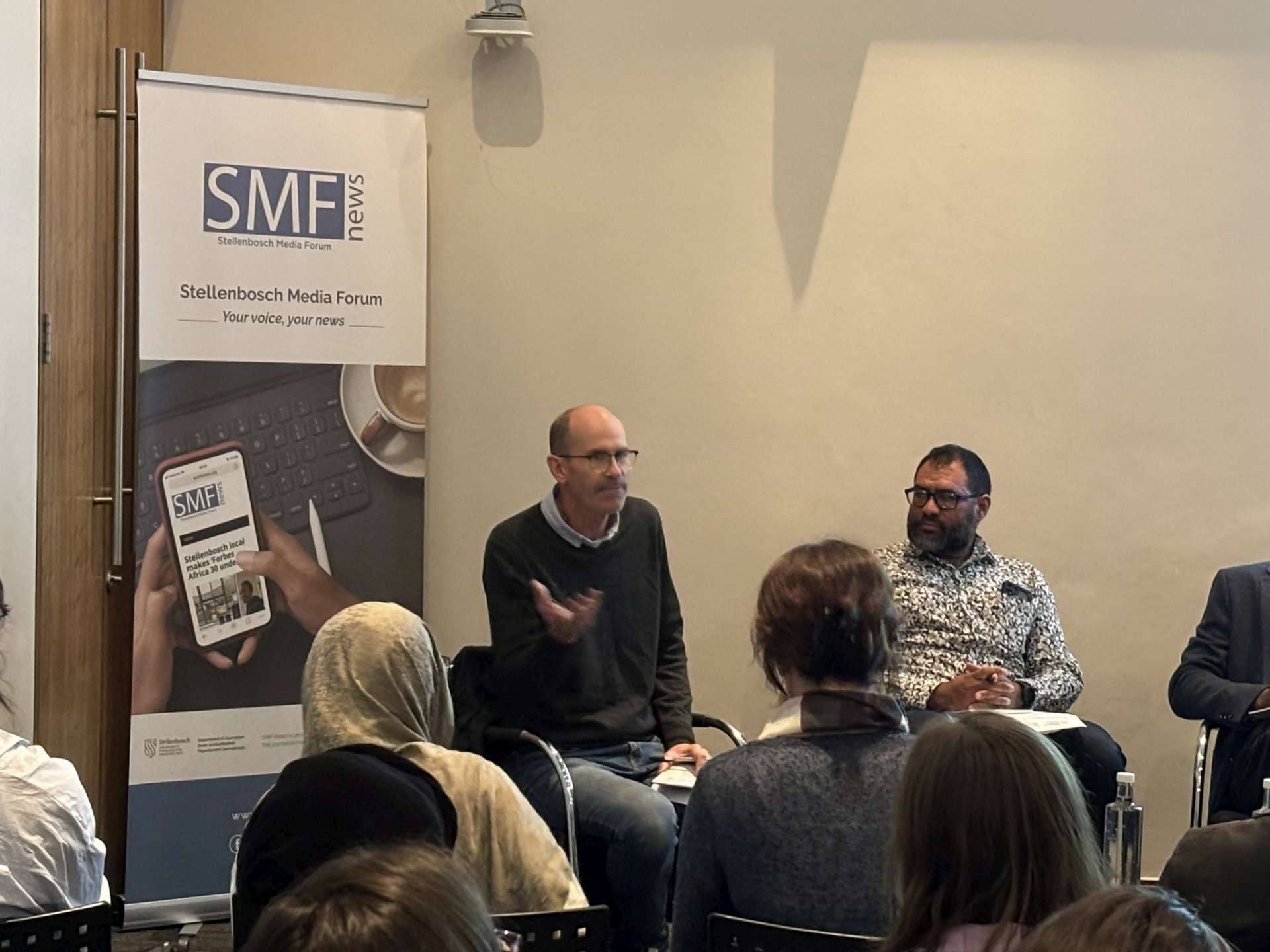
David Le Page states that our economic history is that extraction & exploitation is the main way to gain prosperity, amplified in the fossil fuel industry. The press is also at fault as it listens to the private sector and not to civil society.

Our keynote speaker, Leonie Joubert , states that strong narrative storytelling is key in relating science and environmental news
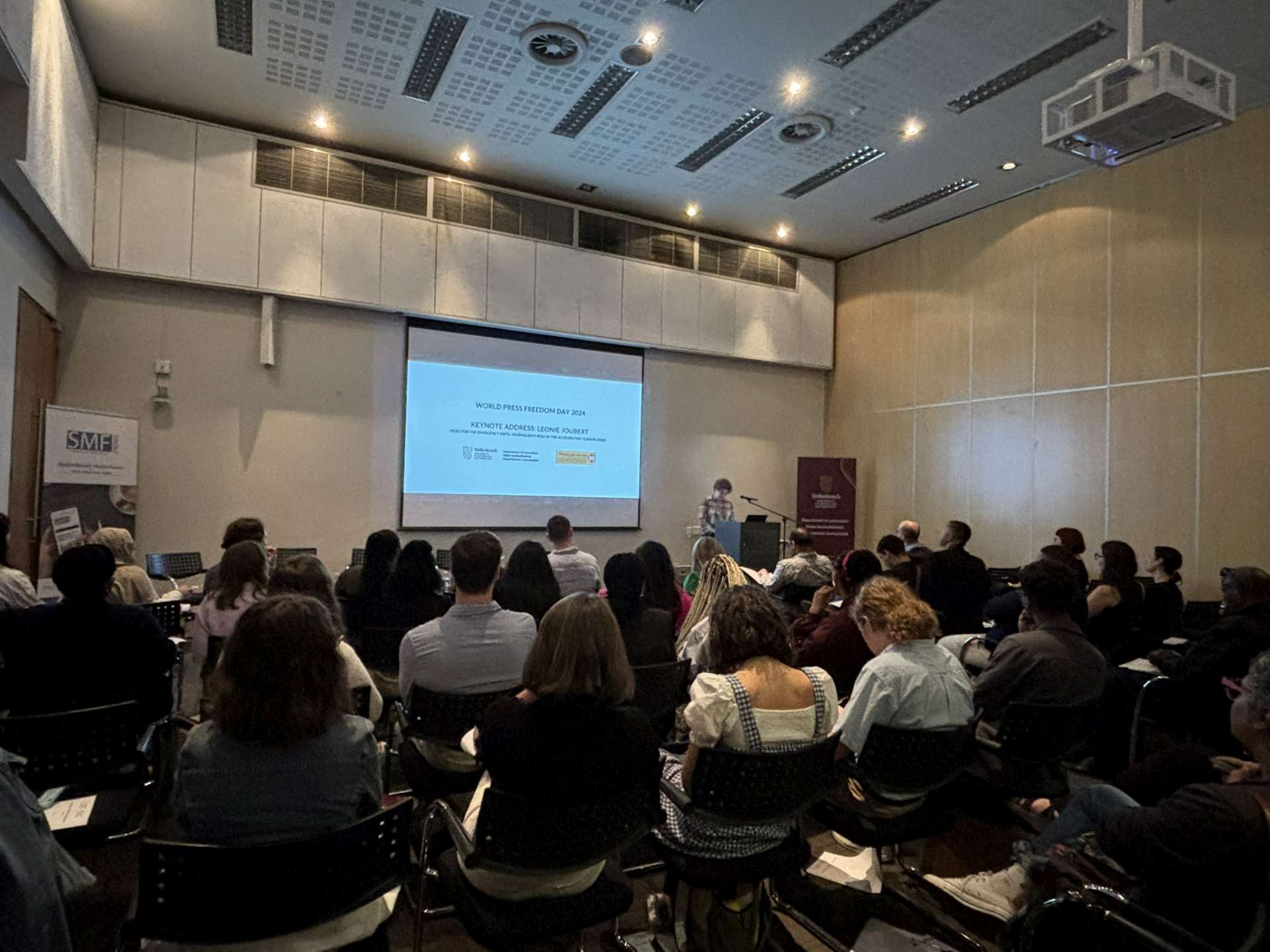
Leonie Joubert states that corporations tends to shift the blame to consumers when they, corporates, are the producers of the products in which the consumers consume. The narrative needs to change and place the responsibility on corporations

Prof Wasserman thanking Leonie Joubert for her address and how it really encapsulated the importance of drawing attention to the environmental crisis as it requires constant interventions to save our planet.

Anneli Groenewald , Honours Coordinator, introduces the Class of 2024 and their production process in their newspaper “The State Of The Element”

SMF Newspaper Editor, Sheree Vollenhoven, introduces the class’s newspaper. She states that the human condition of the environmental crisis is central to their publication

SMF official newspaper front cover: The State of the Elements: South Africa’s Climate Crisis
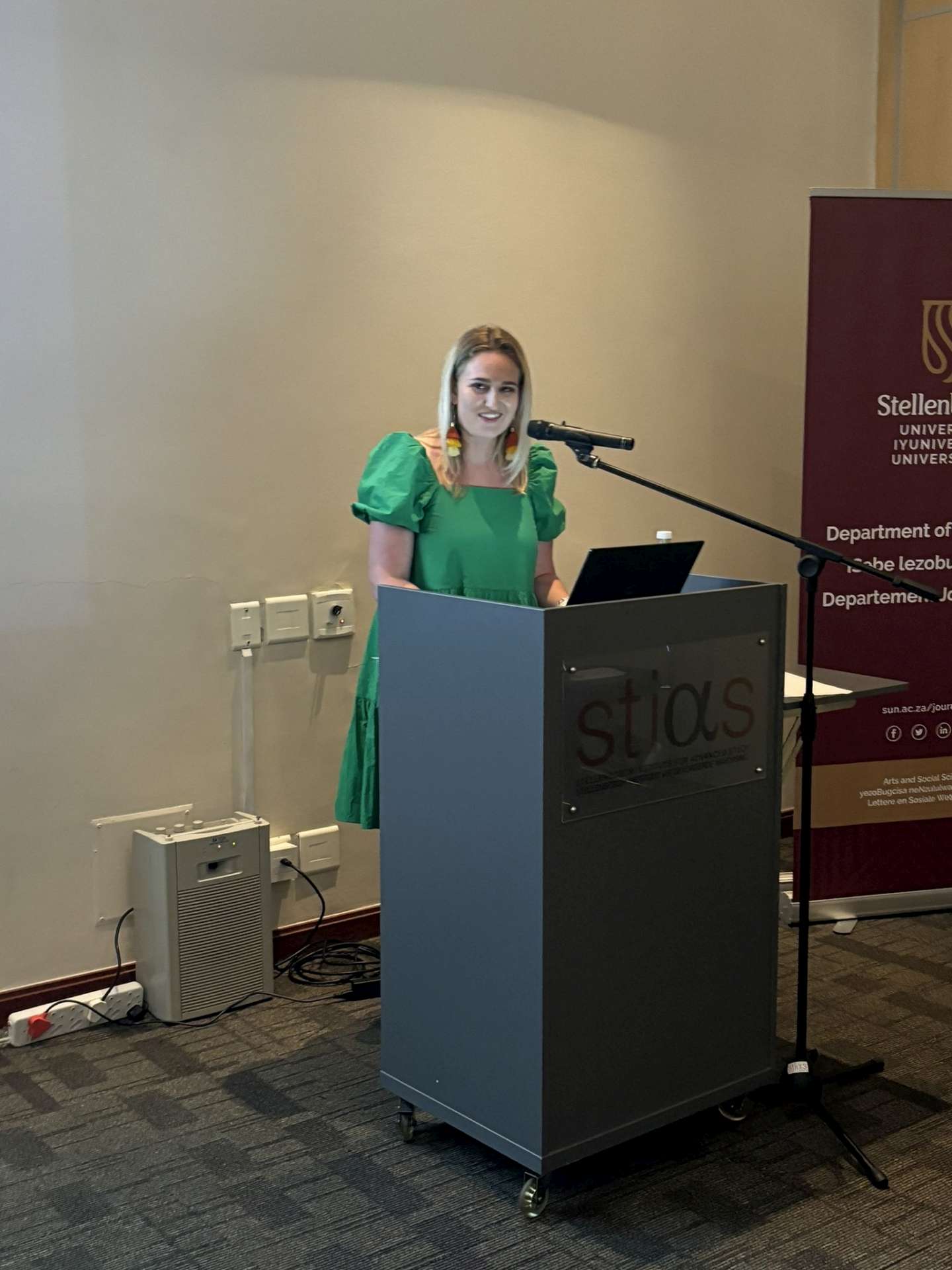
SMF art director, Marilza Adenhorff states that the cover represents time. We have limited time to save the planet and we need to do all that we can to reverse current negative effects

